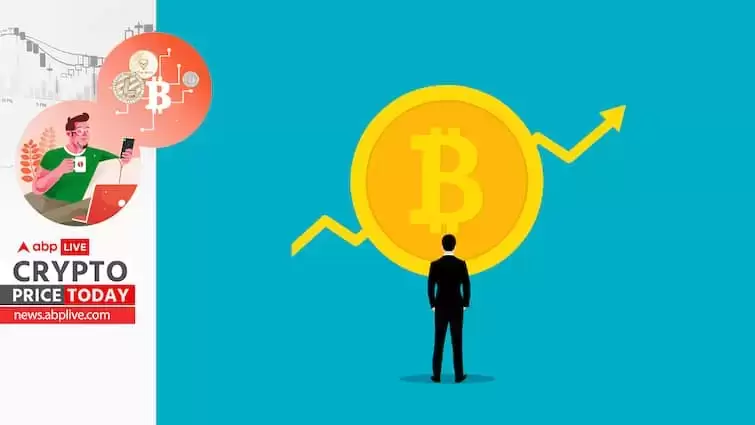 |
|
 |
|
 |
|
 |
|
 |
|
 |
|
 |
|
 |
|
 |
|
 |
|
 |
|
 |
|
 |
|
 |
|
 |
|
今、会話が中央銀行の廊下に響き渡ることを想像してください。

If you're reading this, chances are you've encountered the familiar refrain at a dinner party: "Oh, if only we had bought Bitcoin ten years ago." Now imagine that conversation echoing in the corridors of a central bank, with the implications of a nation missing one of the most asymmetric financial opportunities of the century.
これを読んでいるなら、ディナーパーティーでおなじみのリフレインに遭遇した可能性があります。「ああ、10年前にビットコインを購入した場合だけです。」今、中央銀行の廊下に会話が響き渡っていることを想像してください。
For emerging economies — nations like India, Brazil, Indonesia, South Africa, Nigeria, Thailand, or Vietnam — strategic exposure to cryptocurrencies is crucial for future economic resilience. Together, they represent over 40% of the global population and about 25% of global GDP. However, they remain susceptible to external economic shocks, including currency fluctuations, trade disruptions, and more.
インド、ブラジル、インドネシア、南アフリカ、ナイジェリア、タイ、ベトナムなどの新興経済国にとって、暗号通貨への戦略的な暴露は、将来の経済的回復力にとって重要です。一緒に、彼らは世界人口の40%以上を占め、世界のGDPの約25%を占めています。ただし、通貨の変動、貿易の混乱など、外部の経済的ショックの影響を受けやすいままです。
Today, their sovereign reserves are heavily concentrated in traditional assets like gold and foreign exchange. But those won't provide sufficient hedges in a rapidly digitizing world.
今日、彼らの主権埋蔵量は、金や外国為替などの伝統的な資産に大きく集中しています。しかし、それらは急速にデジタル化する世界で十分なヘッジを提供しません。
Cryptocurrencies aren't an experiment anymore. While Bitcoin is the most widely adopted, making it the primary example in this discussion, the broader argument applies to cryptocurrencies as a whole. The Bitcoin network has been operational for over 99.98% of the time since its inception in 2009. They've survived wars, regulatory crackdowns, and multiple financial crises. Over the last decade, bitcoin has appreciated nearly 200X, far outpacing tech giants like NVIDIA or Apple.
暗号通貨はもはや実験ではありません。ビットコインは最も広く採用されており、この議論の主要な例となっていますが、より広範な議論は暗号通貨全体に適用されます。ビットコインネットワークは、2009年の設立以来、99.98%以上の時間で稼働しています。彼らは戦争、規制の弾圧、複数の金融危機を生き延びました。過去10年間で、ビットコインは200倍近くに感謝し、NvidiaやAppleのようなハイテク大手をはるかに上回っています。
The crypto space, it's no secret, has also faced scams, rug pulls, and bad actors. But that's common in virtually any financial system—think of early stock markets or banking. That's why smart regulation is critical. Countries like Singapore, Japan, and Switzerland have already struck a balance between consumer protection and innovation, offering models for others. But these risks don't negate crypto's core appeal—they demand careful governance.
暗号スペースは秘密ではなく、詐欺、敷物の引っ張り、および悪い俳優にも直面しています。しかし、それは事実上あらゆる金融システムでよく見られます。それは、早期株式市場や銀行業務を考えています。そのため、スマートレギュレーションが重要です。シンガポール、日本、スイスのような国々は、すでに消費者保護とイノベーションのバランスをとっており、他の人にモデルを提供しています。しかし、これらのリスクは暗号の中核的な魅力を否定するものではありません。彼らは慎重なガバナンスを要求します。
Diversification is key. Ask any central banker, fund manager, or financial advisor: you don't put all your eggs in one basket, and you certainly don't bet the future of an economy on a single asset class. In a world that's rapidly digitizing, ignoring digital assets like cryptocurrencies is a mistake. These assets tend to have little correlation with how other traditional assets perform, making bitcoin a strong hedge against economic turbulence.
多様化が重要です。中央銀行家、ファンドマネージャー、またはファイナンシャルアドバイザーに尋ねてください。すべての卵を1つのバスケットに入れたわけではなく、単一の資産クラスで経済の未来を確かに賭けないでください。急速にデジタル化している世界では、暗号通貨のようなデジタル資産を無視することは間違いです。これらの資産は、他の従来の資産のパフォーマンスとほとんど相関していない傾向があり、ビットコインが経済的乱流に対する強いヘッジになります。
We're already seeing entire publicly listed companies built around bitcoin as a core asset. Take Michael Saylor's Strategy, which started as a software firm and now holds over 506,137 BTC (approximately $42 billion as of writing). Countries like El Salvador have adopted Bitcoin as legal tender. Vietnam, India, and Thailand rank among the top 10 countries globally for cryptocurrency adoption already. EAEs must follow this shift or fall behind.
私たちはすでに、ビットコインを中心に構築された公開されている会社全体を中核資産として見ています。ソフトウェア会社として始まり、現在は506,137 BTC(執筆時点で約420億ドル)を保有しているマイケルセイラーの戦略を取ります。エルサルバドルのような国は、ビットコインを法定通貨として採用しています。ベトナム、インド、タイは、すでに暗号通貨の採用のために世界トップ10の国の1つにランクされています。 EAEはこのシフトに従うか、遅れをとる必要があります。
Bitcoin isn't the new digital gold—it serves a very different role. In many cultures, more so in mine, we Indians love our gold. We hoard it, gift it, and trust it as a store of value. Central banks across the world have been buying gold at a record pace in recent years. But gold wasn't always the safe bet we think it is today—back in the 1980s, its price crashed by 60% before bouncing back.
ビットコインは新しいデジタルゴールドではなく、非常に異なる役割を果たしています。多くの文化では、私のものでは、私たちインディアンは私たちの金を愛しています。私たちはそれを買いだめし、贈り、それを価値のある店として信頼します。世界中の中央銀行は、近年、記録的なペースで金を買っています。しかし、金は常に安全な賭けではありませんでした。1980年代には、その価格が60%クラッシュしてから跳ね返る前に60%クラッシュしました。
Bitcoin brings new utility: it can be transferred anywhere in the world in minutes, divided into microscopic fractions, and secured with cryptographic protocols. Gold and Bitcoin share fundamental traits—they're scarce, resilient, and hedge against uncertainty—but gold preserves value traditionally, while bitcoin expands possibilities digitally. They don't replace each other; they work together.
ビットコインは新しいユーティリティをもたらします。それは、世界中のどこにでも数分で転送でき、顕微鏡画分に分割され、暗号化プロトコルで固定できます。ゴールドとビットコインは、希少で弾力性があり、不確実性に対するヘッジがありますが、金の基本的な特性を共有していますが、金は伝統的に価値を保持しますが、ビットコインはデジタルで可能性を拡大します。彼らはお互いを置き換えません。彼らは一緒に働きます。
Critics often dismiss crypto as mere speculation, but its utility is real. Major companies like Microsoft and Starbucks now accept bitcoin and stablecoins for transactions. U.S. bitcoin ETFs have attracted over $12 billion in institutional inflows within months. Crypto enables faster, cheaper remittances, cutting global fees from 6.4% to under 1%, saving billions for developing economies. With over $100 billion locked in DeFi protocols, it's clear that the future of finance is already being built on blockchain.
批評家はしばしば暗号を単なる推測として却下しますが、その有用性は現実です。 MicrosoftやStarbucksなどの大手企業は、取引のためにビットコインとStablecoinsを受け入れています。米国のビットコインETFは、数ヶ月以内に120億ドル以上の施設の流入を集めています。 Cryptoは、より速く、より安価な送金を可能にし、世界的な料金を6.4%から1%未満に引き下げ、発展途上国のために数十億を節約します。 1,000億ドル以上がDefiプロトコルに閉じ込められているため、金融の未来がすでにブロックチェーン上に構築されていることは明らかです。
Emerging economies should take a strategic, forward-looking step toward economic resilience. A 1-2% allocation in digital assets is smart, not a gamble. Track its performance, take cues from early movers like the U.S., El Salvador, and Strategy, and refine the approach as you go. Encourage financial institutions to experiment with crypto-backed financial instruments in a limited way. Proactive regulatory frameworks are vital to foster innovation while ensuring stability.
新興経済は、経済的回復力に向けて戦略的で前向きな一歩を踏み出すべきです。デジタル資産の1〜2%の割り当ては賢く、ギャンブルではありません。そのパフォーマンスを追跡し、米国、エルサルバドル、戦略などの初期の発動者から手がかりを得て、あなたが行くにつれてアプローチを改良します。金融機関に、限られた方法で暗号支援の金融商品を実験するよう奨励してください。積極的な規制枠組みは、安定性を確保しながらイノベーションを促進するために不可欠です。
Countries must position themselves for the future. Holding digital assets reduces reliance on external financial systems and insulates them from geopolitical and monetary shifts. We've seen this playbook before—these countries weren't the first to embrace digital payments, yet they built world-class infrastructure like India's UPI, Brazil's PIX, and Nigeria's NIBSS. The same leadership is possible in crypto reserves. With the global crypto market nearing $3 trillion
国は将来のために自分自身を位置付けなければなりません。デジタル資産を保持すると、外部の金融システムへの依存度が低下し、地政学的および金銭的変化からそれらを隔離します。私たちは以前にこのプレイブックを見たことがあります。これらの国はデジタル決済を最初に受け入れたわけではありませんでしたが、インドのUPI、ブラジルのPIX、ナイジェリアのペン先のような世界クラスのインフラストラクチャを構築しました。暗号埋蔵量でも同じリーダーシップが可能です。グローバルな暗号市場は3兆ドルに近づいています
免責事項:info@kdj.com
提供される情報は取引に関するアドバイスではありません。 kdj.com は、この記事で提供される情報に基づいて行われた投資に対して一切の責任を負いません。暗号通貨は変動性が高いため、十分な調査を行った上で慎重に投資することを強くお勧めします。
このウェブサイトで使用されているコンテンツが著作権を侵害していると思われる場合は、直ちに当社 (info@kdj.com) までご連絡ください。速やかに削除させていただきます。
-

-

-

-

- セーフヘイブンステータスのための戦い:金対ビットコイン
- 2025-04-02 14:40:12
- ニュースが市場全体のクラッシュを引き起こしたため、ビットコインは6%減少し、81,488ドルの低下になりました。
-

-

-

-

-




























































